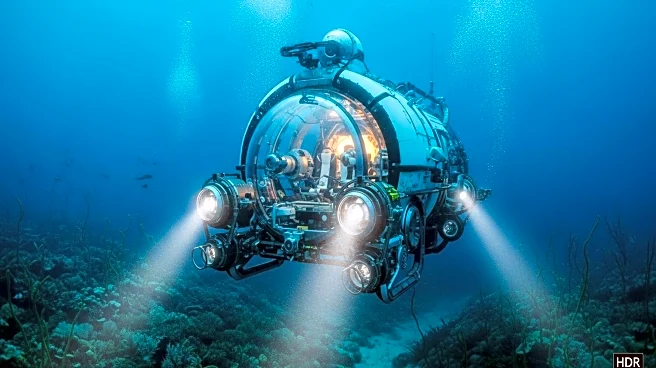What is the story about?
What's Happening?
Bahrain has become the first Middle Eastern country to sponsor a deep-sea mining permit application with the International Seabed Authority (ISA) for Impossible Metals, a US-based company. The application seeks permission to mine the Clarion-Clipperton Zone in the Pacific Ocean, which is rich in polymetallic nodules containing valuable metals like manganese, copper, and nickel. These metals are crucial for electric vehicles and electronics. Bahrain's support is part of its strategy to diversify its economy beyond oil. Impossible Metals has developed a robotic device using artificial intelligence to minimize environmental impact during mining. The company plans to conduct a five-year environmental review costing $70 million, hoping for ISA's rule finalization within this period.
Why It's Important?
Bahrain's backing of Impossible Metals signifies a shift towards economic diversification and investment in emerging industries. Deep-sea mining presents an opportunity to access critical resources needed for technological advancements and green energy solutions. However, it also raises environmental concerns, as the impact on ocean ecosystems is not fully understood. The involvement of Bahrain could lead to further investments in the sector, potentially funding a metals refinery. This development highlights the growing interest in sustainable resource extraction and the geopolitical dynamics of resource acquisition.
What's Next?
The ISA is expected to issue a statement regarding Impossible Metals' application, which will be closely watched by industry stakeholders. The permit process will involve extensive environmental assessments, and the company aims to comply with international regulations. If successful, this could pave the way for more countries to engage in deep-sea mining, potentially altering global resource distribution. The collaboration between Bahrain and Impossible Metals may inspire other nations to explore similar partnerships, influencing future economic and environmental policies.















